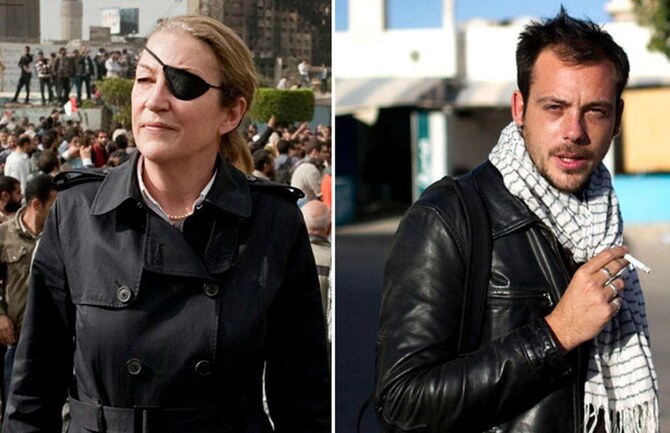French prosecutors have widened their investigation into the 2012 deaths of journalists in Syria, now treating the case as a possible crime against humanity, the country’s anti-terror prosecutors told AFP.
American war correspondent Marie Colvin and French photographer Rémi Ochlik were killed on February 22, 2012, when Syrian government forces shelled the Baba Amr Media Center in Homs. A US court later ruled that the attack was a deliberate act orchestrated by the Syrian military to silence journalists reporting on the civil war.
French authorities had initially classified the deaths as potential war crimes but expanded the investigation on December 17 to cover crimes against humanity, a charge that allows French courts to claim universal jurisdiction regardless of nationality or location.
According to prosecutors, fresh evidence suggests a “concerted plan” by the Syrian regime to target journalists, activists, and human rights defenders as part of a systematic campaign of persecution. Investigators believe Colvin and Ochlik, along with British photographer Paul Conroy, French journalist Edith Bouvier, and Syrian translator Wael Omar—who were injured in the attack—were deliberately targeted.

In 2019, a US federal court found Syria liable for Colvin’s death and ordered the government to pay $302.5 million in damages. The ruling concluded that Syrian intelligence tracked Colvin’s broadcasts from Homs before directing an artillery strike at her location.
French lawyer Matthieu Bagard hailed the new probe as a breakthrough, saying it could set a precedent for treating attacks on war reporters as crimes against humanity. Marie Dose, another lawyer representing journalists in the case, called the move a great step forward for war reporters.
Scott Gilmore, a lawyer for Colvin’s family, urged the new Syrian government to cooperate with international investigators to bring those responsible to justice. Clémence Bectarte, representing Ochlik’s family, said she expected arrest warrants to be issued for senior Syrian political and military officials implicated in the attack.
The Syrian civil war erupted after mass protests in 2011 against President Bashar al-Assad, who ruled for more than five decades before being ousted in December 2024 by rebel forces led by the Islamist group Hayat Tahrir al-Sham (HTS).
Colvin, who was 56 at the time of her death, was widely regarded as one of the world’s most fearless war reporters. She wore a distinctive black eye patch after losing an eye while covering Sri Lanka’s civil war. Her life and work were later portrayed in the 2018 film A Private War.


